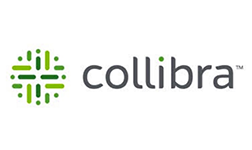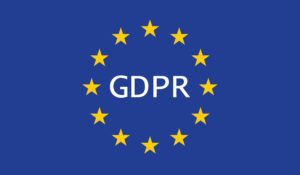
Tech’s Hottest New Trend: Data Governance

(Photon photo/Shutterstock)
What’s the hottest new trend in information technology? If you said “artificial intelligence,” give yourself partial credit, because AI definitely is hot. But for technology decision-makers in the business world, there’s something even bigger simmering just below the surface. It’s called data governance.
Okay, so data governance isn’t the sexiest, most exciting, or even hashtag-friendly topic in the world. Nobody gets into the business of governing data just for its own sake. Your kids don’t strive to grow up to be data governors. Knowing what data is where, how it got there, and who (or what) is using it may be great and all. But it’s not the same thing as actually using data to do cool, innovative, and disruptive stuff. We get it.
But thanks to a confluence of unfortunate events – including the chaos of unstructured data stores, a never-ending string of major data breaches, ongoing privacy concerns, and a new global regulation called GDPR – the normally staid topic of data governance suddenly finds itself on the front burner at organizations around the world.
One of the folks who’s watched the topic of data governance rise in prominence over the past five years is Felix Van de Maele, the CEO of Collibra, which makes software for governing and cataloging data.
“It is a huge topic everywhere — a big topic very high up in the organization,” Van de Maele recently told Datanami. “Everybody is talking about it and thinking about it. It’s a topic on the board or executive level’s agenda, for sure. It has become a priority.”
Eyeing GDPR
The one galvanizing event that will define data governance in 2018 will occur on May 25. That’s the day that the General Data Protection Regulation (GDPR) — a far-reaching European Union law that tells companies what types of data they can and can’t store about European citizens, what they must disclose to those citizens about that data storage, and how they must dispose of the data – goes into effect.
While the EU has set May 25 as the day that GDPR officially goes into effect, Van de Maele sees that really as a starting point, not an end point. After the EU fines a few companies to show that it means business, then companies will begin to realize they must take data governance seriously.
“I think this is still just a first step,” Van de Maele said. “If you look at the market, companies are realizing how important data privacy and data protection are. You see the data breaches destroying so much value for companies.”
GDPR will mark the start of a new era where people “really start to care about how the companies that I use are treating my personal data,” the Collibra CEO said. “It’s really a mindshift that we’ll see over the next 10 years.”
European companies are a bit ahead of their American brethren in terms of their compliance with GDPR, Van de Maele said. “It’s a little higher on the agenda in Europe,” he says. “They’re a little bit more ahead with respect to the implementation. There are companies in the US that take it very serious as well. But in general we see companies in Europe taking it more seriously.”
Funding Governance
Collibra, which has headquarters in Brussels and New York City, recently completed a Series D round of financing in the amount of $58 million, which brought its total funding to $133 million.
 Van de Maele says Collibra didn’t necessarily need the money at this time, but acknowledged that it will be useful for accelerating growth. During its fiscal year 2017, Collibra doubled revenues compared to the previous year. The company currently has 300 employees and expects to add another 100 by the end of the year, Van de Maele said.
Van de Maele says Collibra didn’t necessarily need the money at this time, but acknowledged that it will be useful for accelerating growth. During its fiscal year 2017, Collibra doubled revenues compared to the previous year. The company currently has 300 employees and expects to add another 100 by the end of the year, Van de Maele said.
Besides regulatory compliance, Van de Maele sees the growth of unstructured data – and the difficulty in getting data to the people who need it — as another key piece of fuel driving the data governance fire. And just as the chief information officer had to apply governance to reign in the IT chaos that rose in the wake of Y2K, he says chief data officers today are crying out for better governance tools to restore order.
“Every company was investing heavily in IT since the year 2000, so the result of that is it became chaos,” he said. “What happened is the CIO came in and said ‘We need more control or we’ll never be able to extract value from IT investment.’ So that’s how IT governance came to be.
“And now you see the exact same thing happening with data over the last five to 10 years,” he continued. “Companies have started to realize how important and critical data has become. And data now has become the biggest competitive differentiator. Digital transformation is all driven through data. AI, IoT, machine learning, advanced analytics – it’s all about data.”
Cataloging Chaos
Companies have invested heavily in their data infrastructure, but instead of building their systems in an orderly fashion, they’ve sewn a degree of chaos in their organizations. They’ve constructed data lakes to house the digital outflow, but they’ve failed to apply controls necessary to prevent those lakes from devolving into data swamps.
Keeping track of where all the data resides is the first step in the process, according to Van de Maele. Products like Collibra’s data catalog function like the index cards in a library that tell visitors where to find a particular book. Collibra functions like Switzerland in the sense that it strives to support all storage repositories, whether it’s a Hadoop cluster on premise, an object store in the cloud, or NoSQL database deployed in a hybrid manner.
“We have multiple customer with multiple data lakes. They need a catalog to say, on which data lake is it?” Van de Maele said. “Some of it you’re going to store on premise and some of it you’re going to store on AWS or Azure.”
And while Van de Maele doesn’t think that copying the “golden records” into master data management (MDM) systems is a good approach in this day and age, Collibra will still support MDM deployments.
“There’s always going to be that complexity. Our belief is you’ll never be able to get everything on one system,” he said. “Ultimately you will have a multitude of different systems and repositories capturing or storing data. That’s why you need a catalog on top of that that doesn’t store data — it just gives you the pointers on where to find it, what it means, how you can access it, and how you can trust it.”
Just as the CIOs used products like ServiceNow to run their IT business and CFOs use SAP to manage their finances, companies will need a new set of tools to manage their data – to manage their data business, Van de Maele said.
“Ultimately what we believe is data is going to become such an important aspect of any company’s business in every vertical that every company will need to come up with a data business, and you will need a way to run your data business,” he said. “That’s how we position ourselves, to really support the business of data.”
Related Items:
Why 2018 Will Be All About the Data
Cloud Looms As Answer to All Things Analytic
































